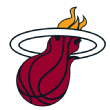LeBron James’ 2010 decision to take his talents to South Beach and form the Big Three with Dwyane Wade and Chris Bosh led to two NBA championships. With LeBron once again on the market, we take a look at some of the other free-agent signings since 2000 that have generated a signnificant impact.
NBA
Kevin Durant (Golden State Warriors, 2016)
Background: Durant established himself as the second-best player in the NBA behind LeBron James, winning an MVP award in 2014 and teaming up with Russell Westbrook and James Harden in Oklahoma City to take the Thunder to the 2012 NBA Finals, where they lost to the Heat. In 2016, the Thunder blew a 3-1 lead in the Western Conference finals to the Warriors, and later that summer, Durant left OKC for Golden State.
Contract: Durant signed a two-year, $54.3 million contract after being recruited by the Warriors in 2016.
Aftermath: There was no stopping the 2016-2017 Warriors, as Durant joined forces with Stephen Curry, Draymond Green and Klay Thompson to lead the Warriors to the first of back-to-back titles — and back-to-back Finals MVPs for Durant.
 LeBron James (Miami Heat, 2010)
LeBron James (Miami Heat, 2010)
Background: James was coming off a successful seven seasons in Cleveland to start his career, but with no titles to show for the superstar, he took his talents to South Beach in his much-hyped “decision,” joining forces in the process with Dwyane Wade and Chris Bosh on the Miami Heat.
Contract: James was acquired through a sign-and-trade deal in the summer of 2010 and signed for six years and $110.1 million, with an early-termination option after the fourth season.
Aftermath: James won two titles and made four consecutive NBA Finals appearances in his four seasons with the Heat, cementing his legacy as the league’s top player. Meanwhile, in Cleveland, James took a lot of heat (no pun intended) for leaving his hometown team, and the Cavs regressed to lottery status following the King’s departure. The Heat enjoyed James’ four seasons in Miami before he rejoined the Cavs in 2014.
 LeBron James (Cleveland Cavaliers, 2014)
LeBron James (Cleveland Cavaliers, 2014)
Background: In 2010, James left his hometown Cavs for a chance at championships with the Heat. He won two in four years, and in 2014, decided to return home to Cleveland for a chance at winning a championship with the Cavs. Kevin Love joined him, teaming up with budding star Kyrie Irving in the process.
Contract: James signed a two-year, $42.1 million deal in 2014, returning to Cleveland.
Aftermath: It took two seasons, but James delivered on his goal of bringing a title back home, leading the Cavs to an NBA championship in 2016. From the 2014-15 season through this past season, he took Cleveland to four straight NBA Finals.
 Steve Nash (Phoenix Suns, 2004)
Steve Nash (Phoenix Suns, 2004)
Background: The point guard went from All-Star level in Dallas to being the MVP in Phoenix — joining a Suns team that shone in coach Mike D’Antoni’s fast-paced offensive system, which was, at the time, revolutionary.
Contract: Nash signed a six-year package in 2004 worth more than $65 million — with the sixth season partially guaranteed and the Suns holding a team option for the full amount in Year 6.
Aftermath: Nash won back-to-back MVP awards in 2005 and 2006 while leading the Suns to great regular-season success — but never the NBA Finals. Nash still goes down as one of the greatest point guards of all time.
 Chris Bosh (Heat, 2010)
Chris Bosh (Heat, 2010)
Background: Bosh was the guy in Toronto, a perennial All-Star who could never quite get the Raptors far in postseason play. So he decided to join LeBron James in Miami, teaming up with Dwyane Wade to form the Heat’s Big Three.
Contract: Bosh was acquired through a sign-and-trade in the summer of 2010 and signed with the Heat for six years and $110.1 million, with an early-termination option after the fourth season.
Aftermath: Bosh lived up to his All-Star status and played a key role in the Heat’s run to four consecutive NBA Finals appearances and two titles, including a clutch block in the 2013 Finals victory over the San Antonio Spurs.
NFL
 Drew Brees (New Orleans Saints, 2006)
Drew Brees (New Orleans Saints, 2006)
Background: Brees was at a crossroads when he entered free agency after the 2005 season. He suffered a torn labrum in the season finale with the Chargers, who were already planning on replacing him with 2004 first-round pick Philip Rivers. So the market for Brees was a bit tenuous, particularly after he went through arthroscopic surgery after the season ended.
Contract: The Saints and Dolphins emerged as front-runners for Brees, and it looked for a while as though he would be playing in Miami. The Dolphins were hesitant about Brees’ shoulder, which allowed the Saints to swoop in and sign him to a six-year, $60 million deal.
Aftermath: Brees jelled with Saints coach Sean Payton off the bat and has taken off from there, going from a solid starter for the Chargers to a surefire Hall of Famer who’s 1,495 yards short of being the most prolific passer in NFL history. Brees has thrown for 58,907 of his 70,445 yards in New Orleans and 408 and 488 of his touchdown passes. Brees has played in 10 Pro Bowls and won a Super Bowl MVP in leading the Saints to the Super Bowl XLIV title after the 2009 season.
 Nick Foles (Philadelphia Eagles, 2017)
Nick Foles (Philadelphia Eagles, 2017)
Background: Foles was a third-round draft pick by the Eagles in 2012 and eventually supplanted Michael Vick as the starter. He flourished under Chip Kelly in 2013, going to the Pro Bowl after throwing 27 touchdown passes to two interceptions, but injuries and uneven play in 2014 forced a trade to the Rams, where he was benched in 2015 due to turnovers. He was a free agent again in 2017 after spending 2016 as a backup with the Chiefs.
Contract: There weren’t any starting-quarterback jobs on the open market so Foles returned to Philadelphia, signing a two-year, $11 million contract with $7 million guaranteed to serve as the backup to second-year quarterback Carson Wentz.
Aftermath: Foles was a spectator for most of 2017, as Wentz led the Eagles to a 10-2 record before being injured in Week 14 against the Rams. Foles led Philly to the Week 14 victory but struggled in the final three games of the regular season. The backup caught fire in the playoffs, leading the Eagles to their first NFL title in 57 years with an MVP performance against the Patriots, throwing for 373 yards and three touchdowns and catching another TD pass in Super Bowl LII.
 Peyton Manning (Denver Broncos, 2012)
Peyton Manning (Denver Broncos, 2012)
Background: Manning was already a Hall of Famer before becoming a free agent after the 2011 season, as he led the Colts to two Super Bowl appearances, one Super Bowl title and threw for for 54,828 yards and 399 touchdowns from 1998-2010. But neck surgery caused him to miss the 2011 season. With Manning’s future in doubt, the Colts decided to dedicate the No. 1 pick in the 2012 draft to his successor and made him a free agent.
Contract: Manning’s injury didn’t scare off other teams, as a bevy of suitors wanted to sign the future Hall of Famer. While the Titans, Dolphins and Cardinals all made strong bids to sign Manning, he decided to sign a five-year, $96 million contract with the Broncos.
Aftermath: Manning got healthy in time for the 2012 season and was able to end his impeccable career on his terms with a four-year stint in Denver. Manning set single-season NFL records for passing yards (5,477) and passing touchdowns (55) during a 2013 season in which he won the MVP and led the Broncos to the Super Bowl. Manning ended his career as the all-time leader in passing yards (71,940) and passing touchdowns (539) and with a championship in Super Bowl 50.
 Shannon Sharpe (Baltimore Ravens, 2000)
Shannon Sharpe (Baltimore Ravens, 2000)
Background: Sharpe was John Elway’s security blanket during his 10 seasons in Denver, making seven Pro Bowls, notching three 1,000-yard seasons and helping the Broncos win two Super Bowls. But Sharpe’s 1999 season was cut short in Week 5 after the All-Pro tight end suffered a fractured collarbone.
Contract: With his injury and advancing age (Sharpe turned 32 before the 2000 season), the Broncos weren’t willing to break the bank for Sharpe. The Ravens took advantage, signing Sharpe to a four-year, $13.8 million contract with a $4.5 million signing bonus.
Aftermath: Sharpe was not only the Ravens’ most prolific receiving threat, but also came up big during Baltimore’s run to a Super Bowl XXXV championship, catching a 96-yard touchdown pass in the AFC title game against the Raiders and adding a 58-yard score against the Broncos in the wild-card game. He made the Pro Bowl in 2001 before going back to Denver for two more seasons. Sharpe was inducted into the Hall of Fame in 2011.
 Charles Woodson (Green Bay Packers, 2006)
Charles Woodson (Green Bay Packers, 2006)
Background: After winning the Heisman Trophy at Michigan, Woodson immediately became one of the top cornerbacks upon entering the NFL in 1998, making the Pro Bowl in his first four seasons and leading the Raiders to the Super Bowl in 2002. But leg injuries knocked him out of 13 games combined in 2004 and 2005, and a rebuilding Oakland organization let him walk.
Contract: The broken leg he suffered in 2005 depressed the market for Woodson, who went unsigned and mostly unpursued during the first two months of free agency. With few teams to choose from, Woodson signed an incentive-laden, seven-year deal with the Packers.
Aftermath: While Woodson initially balked at going to Green Bay, his seven seasons there got his career back on track and paved the way to what will likely be a spot in the Hall of Fame. He intercepted 38 passes as a Packer (returning nine for touchdowns) and also added 11.5 sacks as he transitioned from outside corner to nickel to free safety. Woodson made four Pro Bowls with the Packers, was the 2009 Defensive Player of the Year and helped lead the way to a Super Bowl XLV title after the 2010 season.
MLB
 David Ortiz (Red Sox, 2003)
David Ortiz (Red Sox, 2003)
Background: The Red Sox were coming off their third consecutive season without a playoff berth when they signed a relatively little-known first baseman who had been released by the Twins in a move to save cap space.
Contract: Red Sox general manager Theo Epstein signed Ortiz to a one-year, non-guaranteed contract in 2003 that would pay him $1.25 million if he made the team.
Aftermath: Ortiz hit 31 home runs and drove in 101 runs in his first year in Boston. The Red Sox would fall to the Yankees in the American League Championship Series in seven games but would go on to win the World Series the following season, dispatching the Yankees in the process and ending an 86-year championship drought. Ortiz became one of the most clutch hitters in baseball and won three World Series titles while garnering 10 All-Star selections in Boston. Big Papi hit 483 of his 541 career home runs with the Red Sox — not bad for that initial $1.25 million investment.
 Manny Ramirez (Boston Red Sox, 2001)
Manny Ramirez (Boston Red Sox, 2001)
Background: Ramirez had already established himself as one of the best hitters in the game when he left Cleveland to join the Red Sox in 2001. Ramirez had posted five 100-RBI seasons with the Indians, including a monster 1999 during which he put up 44 home runs and 165 RBIs.
Contract: Ramirez agreed to an eight-year, $160 million contract before the 2001 season, making him the second-highest-paid player in the league behind Alex Rodriguez.
Aftermath: Ramirez was a key cog for the curse-busting Red Sox teams, averaging 39 home runs and 118 RBIs from 2001-06. Ramirez won six straight Silver Slugger awards after joining Boston and made eight consecutive All-Star teams.
 Vladimir Guerrero (Anaheim Angels, 2004)
Vladimir Guerrero (Anaheim Angels, 2004)
Background: Vladimir Guerrero burst onto the scene in 1998 with the Expos, hitting .324 with 38 home runs and 109 RBIs, but was let go by the cash-strapped franchise after the 2003 season. In his final six seasons in Montreal, he averaged 37 homers per season.
Contract: Entering his age-29 season, Guerrero, a career .323 hitter at the time, signed a five-year deal with the Angels in 2004.
Aftermath: It didn’t take long for Guerrero to make his presence felt in Southern California. In his first season with the Angels, Guerrero hit .337 with 39 home runs, 126 RBIs, 124 runs and was named AL MVP. Guerrero hit over .300 and drove in at least 100 runs in each of his first four seasons with the Angels.
 Ivan Rodriguez (Detroit Tigers, 2004)
Ivan Rodriguez (Detroit Tigers, 2004)
Background: Pudge spent 12 seasons with the Rangers after coming up as a teenager before joining the Marlins in 2003, helping Florida win the World Series that season. Rodriguez had amassed 10 All-Star selections, 10 Gold Gloves and an MVP before signing with the Tigers in 2004.
Contract: Rodriguez signed a four-year, $40 million contract with the Tigers in 2004, leaving a World Series champion to join a team that had just set an American League record for losses in a season.
Aftermath: Pudge went to four straight All-Star games after joining the Tigers and added three more Gold Gloves to his collection. He was part of the miraculous turnaround that saw Detroit reach the World Series in 2006, where it lost in five games to the Cardinals.
 Max Scherzer (Washington Nationals, 2015)
Max Scherzer (Washington Nationals, 2015)
Background: After coming up with Arizona, Scherzer was traded to the Tigers before the 2010 season. He won 82 games over five seasons with Detroit and captured the American League Cy Young Award in 2013.
Contract: Scherzer joined the Nationals on a seven-year, $210 million deal in 2015.
Aftermath: Scherzer has made the All-Star team every year since joining the Nationals and won back-to-back Cy Young Awards in 2016 and 2017. The National League’s premier strikeout pitcher, Scherzer has punched out at least 268 batters in each of his first three full seasons in Washington and has established himself as one of the most reliable, dominant pitchers in the game.
NHL
 Brett Hull (Detroit Red Wings, 2001)
Brett Hull (Detroit Red Wings, 2001)
Background: Hull chose a better chance to win a championship over cash. After Dallas declined his $7 million option for 2001, Hull took less money to join the Stanley Cup-contending Red Wings over more lucrative offers from the Canadiens and Rangers.
Contract: Hull, who had scored 39 goals for Dallas in 2000-01, signed a two-year, $9 million deal with the Red Wings during that offseason.
Aftermath: For Hull, it was mission accomplished. He helped lead the Red Wings to the Stanley Cup title in 2001-02 — beating Carolina in five games — scoring 10 goals in the playoffs after notching 30 in the regular season. It was Hull’s second career Stanley Cup Finals victory.
 Zdeno Chara (Boston Bruins, 2006)
Zdeno Chara (Boston Bruins, 2006)
Background: At the end of the 2005-06 season, financially strapped Ottawa had to make a choice: Keep Chara or fellow defenseman Wade Redden. The Senators allowed the 6-foot-9 Chara to take his wicked slap shot elsewhere, letting him hit free agency. They’ll certainly want a mulligan on that move.
Contract: On the first day of NHL free agency in 2006, the Bruins signed Chara to a five-year, $37.5 million deal and immediately named him a team captain.
Aftermath: Chara scored double-figure goals in six of his first seven seasons in Boston, highlighted by a Stanley Cup title in 2011. Chara, who won the Norris Trophy as the NHL’s top defender in 2008-09, has become a lock for the Hall of Fame, helped by his longevity. At age 41, he’s still a key member of the Bruins’ defense.
 Marian Hossa (Chicago Blackhawks, 2009)
Marian Hossa (Chicago Blackhawks, 2009)
Background: After playing for three teams in 2008, Hossa was looking for stability during a fragile economic time. No more one-year contracts for this scoring star, who in 2008-09 helped lead the Red Wings to within one game of capturing the Stanley Cup. He scored 40 regular-season goals and had six in the postseason. It was about time for the All-Star to cash in as a free agent.
Contract: Talk about commitment — Hossa got that from the Blackhawks in 2009. The team signed him to a whopping 12-year deal worth $62.8 million.
Aftermath: While he never came close to scoring 40 goals again, Hossa was worth that mega-deal, helping lead the Blackhawks to the Stanley Cup title in his first season with them in 2010. They’ve also won two more titles together in 2013 and 2015. During the 2014-15 season, Hossa joined the 1,000-point club, becoming the 80th player in NHL history to reach the milestone.
 Scott Niedermayer (Anaheim Ducks, 2005)
Scott Niedermayer (Anaheim Ducks, 2005)
Background: Niedermayer helped lead the Devils to three Stanley Cup titles in 13 seasons, but the star defenseman couldn’t work out a long-term deal with team after the 2003-04 season. He chose to go to arbitration, and it was a success. Niedermayer was awarded a one-year, $7 million deal, which tied for the highest amount ever given in arbitration. But after the 2004-05 lockout, the deal was voided and he became an unrestricted free agent.
Contract: A proven commodity on the open market, Niedermayer had over a dozen teams inquiring about his services on the first day of free agency in 2005. But instead of taking a five-year deal to stay with the Devils, Niedermayer signed a four-year pact worth $6.75 million per season to join his brother, Rob, in Anaheim.
Aftermath: Instant success for Niedermayer and the Ducks ensued. In his first season with the Ducks in 2005-06, Niedermayer was an All-Star and helped lead them to the Western Conference finals. The following season, he won his fourth career Stanley Cup crown as Anaheim set a franchise record with 48 wins. Niedermayer also recorded career highs of 15 goals and 54 assists in 2006-07.
 Martin St. Louis (Tampa Bay Lightning, 2000)
Martin St. Louis (Tampa Bay Lightning, 2000)
Background: After bouncing from the minors to Calgary for several seasons, the team bought out St. Louis’ contract after he wasn’t selected in the 2000 NHL expansion draft. Hard to blame the Flames — St. Louis appeared to be a fringe NHL player at best after the right winger scored just three goals in his first full NHL season in 1999-2000.
Contract: While a few teams showed interest in St. Louis, he signed a $250,000 deal with the Lightning in 2000.
Aftermath: St. Louis became the face of the Tampa Bay franchise during his 13-year run, owning the club record for points and assists. The 5-foot-8 St. Louis, who played in six All-Star Games, led the Lightning to the 2004 Stanley Cup title. In that season, he won the Hart Trophy as the league’s MVP. St. Louis also owns two Art Ross Trophies, given to the NHL points leader at the end of the regular season, and three Lady Byng Memorial Trophies, awarded to the player exhibiting the best sportsmanship while playing at a high level.
MLS
 David Beckham (LA Galaxy, 2007)
David Beckham (LA Galaxy, 2007)
Background: Beckham was already an international name before he arrived in Los Angeles, thanks to three World Cup appearances and six Premier League titles at Manchester United. Beckham played for Real Madrid between 2003-2007, when the then 31-year-old announced he would sign with the Galaxy and forgo Real’s contract extension offer.
Contract: Initially reported to be a $250 million deal over five years, in reality Beckham had signed a five-year contract worth $32.5 million. The $250 million was a number generated based on his potential earnings on and off the field.
Aftermath: Despite a slow start due to injury (Beckham appeared in just five games and two starts his first year), the midfielder drew an average crowd size of over 37,600 fans in a year where the league average was 16,770. Beckham helped lead the Galaxy to four postseason runs that yielded back-to-back MLS Cups in 2011 and 2012. In that time frame, he was named MLS Best XI and earned Comeback Player of the Year. The designated player rule that brought Beckham to the U.S. by allowing teams to sign high-profile players outside a club’s cap space is informally called the “Beckham Rule.”
 Thierry Henry (New York Red Bulls, 2010)
Thierry Henry (New York Red Bulls, 2010)
Background: Henry’s French record of 51 international goals along with a four-year span in which he was the Premier League’s top scorer helped cement his reputation as one of the best. He spent his most productive years with Arsenal before transferring to Barcelona in 2007. The Frenchman saw limited starts in what would be his final year with Barcelona, and while Henry had a year remaining on his contract, club president Joan Laporta suggested they were ready to move on.
Contract: The Red Bulls brought Henry on as their second designated player in a multiyear contract that at one point surpassed Beckham’s and made him the highest-paid player in the league.
Aftermath: After Beckham, Henry was one of the major names to arrive in the States, and scoreboards in Red Bull Arena were temporarily outfitted with “Bienvenue Thierry Henry!” to welcome the veteran. Henry never won a title with the Red Bulls, but was named to four All-Star teams and was a three-time Best XI selection. The captain retired in 2014 as the Red Bulls’ career leader in assists, with 42.
 David Villa (New York City FC, 2014)
David Villa (New York City FC, 2014)
Background: After winning a La Liga title in his lone season with Atletico Madrid, Villa surprised everyone when he announced he had accepted an “irresistible” offer from a team that was eventually revealed to be New York City FC. By 2014 he was already Spain’s all-time leading goalscorer, having scored five goals in a run to help his native country capture the 2010 World Cup.
Contract: Villa was acquired on a free transfer from Atletico Madrid and was the first player to sign with New York after it was announced as an expansion team the year before, inking a three-year contract for $16.8 million.
Aftermath: Villa’s MVP performance in 2016 helped New York City FC rise from the bottom third of the Eastern Conference the season before to second place. The first player in MLS history to score at least 20 goals in consecutive seasons between 2016 and 2017, Villa’s 400th career goal in April, 2018 made him one of only four active players to reach that milestone. Only Lionel Messi, Luis Suarez, Cristiano Ronaldo and Zlatan Ibrahimovic have done so.
 Clint Dempsey (Seattle Sounders FC, 2013)
Clint Dempsey (Seattle Sounders FC, 2013)
Background: After three seasons in Major League Soccer, the 2014 Rookie of the Year transferred from the New England Revolution to Fulham and eventually, to Tottenham. In his time abroad, Dempsey became one of the most successful Americans to play across the Atlantic and set the goal-scoring record for a U.S. native in the Premier League. The Sounders brought Dempsey back stateside by paying the Spurs an MLS-record $9 million transfer fee.
Contract: In addition to the transfer fee, the Sounders shelled out a reported $24 million over four years to make Dempsey one of the the highest-paid MLS players.
Aftermath: Dempsey’s return to MLS in his prime steered away from previous narratives in a league where international stars came to the U.S. near retirement. The Sounders have reached the postseason in each of Dempsey’s seasons in Seattle, and in 2017 he finished as the team’s regular-season top scorer with 12 goals and five assists before the team eventually lost in the MLS Cup.
 Kaka (Orlando City SC, 2014)
Kaka (Orlando City SC, 2014)
Background: Kaka’s soccer resume was enough to motivate hundreds of fans to greet the Brazilian star at the airport when he landed in Orlando. He was a FIFA World Player of the Year, Ballon d’Or winner and World Cup champion when he opted out of his contract with AC Milan to play in the MLS. At this point his career was on a decline — he had transferred from Milan to Real Madrid, where his performance fell short of expectations, then moved back to Milan after four years. Even so, his name helped add credibility to a young Orlando organization.
Contract: The club’s first designated player signed a three-year contract that paid just over $7.1 million per season.
Aftermath: Kaka ended up scoring Orlando’s first-ever goal in its MLS debut to tie the game in extra time. He was an All-Star all three years and announced his retirement at the end of the 2017 season, but not before recording 24 goals and 22 assists in 75 regular season appearances.
Source : ESPN













